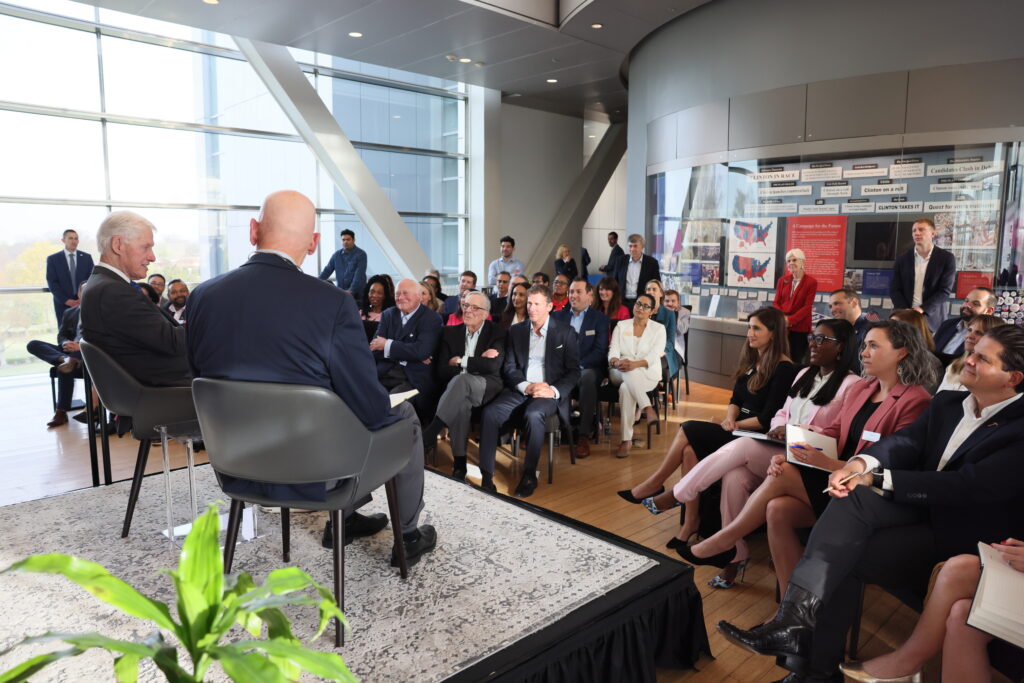In March, the 10th cohort of Presidential Leadership Scholars gathered at the Clinton Presidential Center in Little Rock, Arkansas, where they met with President Bill Clinton and Secretary Hillary Rodham Clinton.
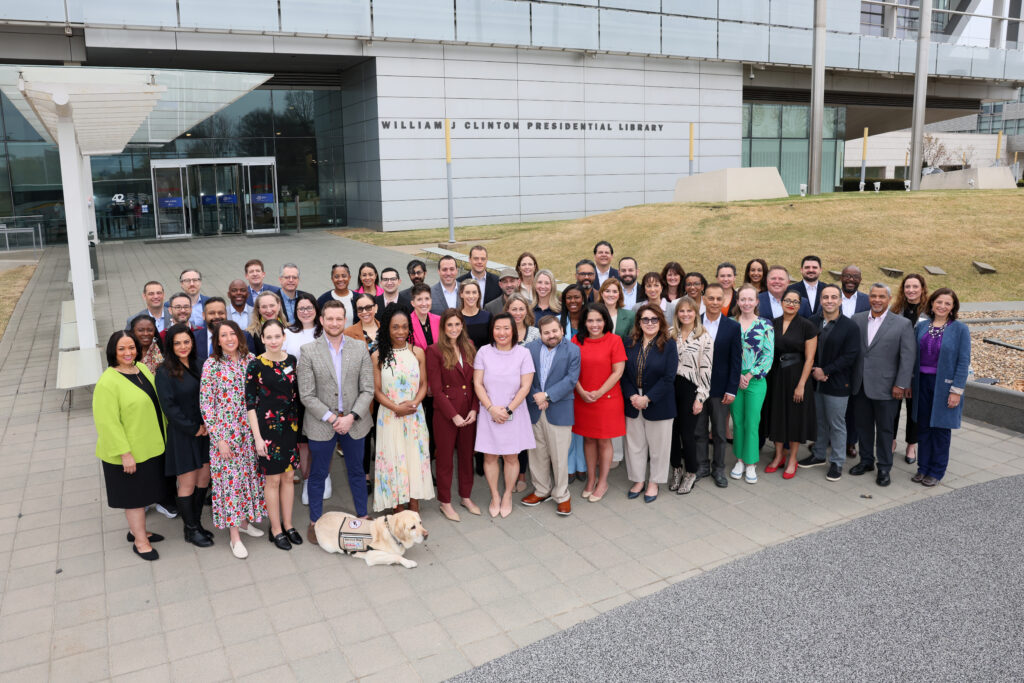
During the module Scholars explored how the clarity of President Clinton’s values and vision, the strength of his convictions, and his skills as a communicator positively impacted his leadership. They also studied the importance of developing and communicating a clear vision for the work they are doing.
In his conversation with Scholars, President Bill Clinton shared how he assesses potential opportunities or initiatives. He starts by asking several questions rooted in the values that have guided his lifetime of service.
“I ask myself when I’m asked to take on some new challenge, will this lead to people being better off when I quit than when I started it? Will the children have a brighter future? And will it enable us to come together or be more likely to tear us apart?”
Once committed to a project, he encouraged Scholars, craft an actionable plan and compelling narrative designed to inspire and engage partners, colleagues, and stakeholders: “First, you have to have a program. You have to say, this is how I want to change things for the better.”
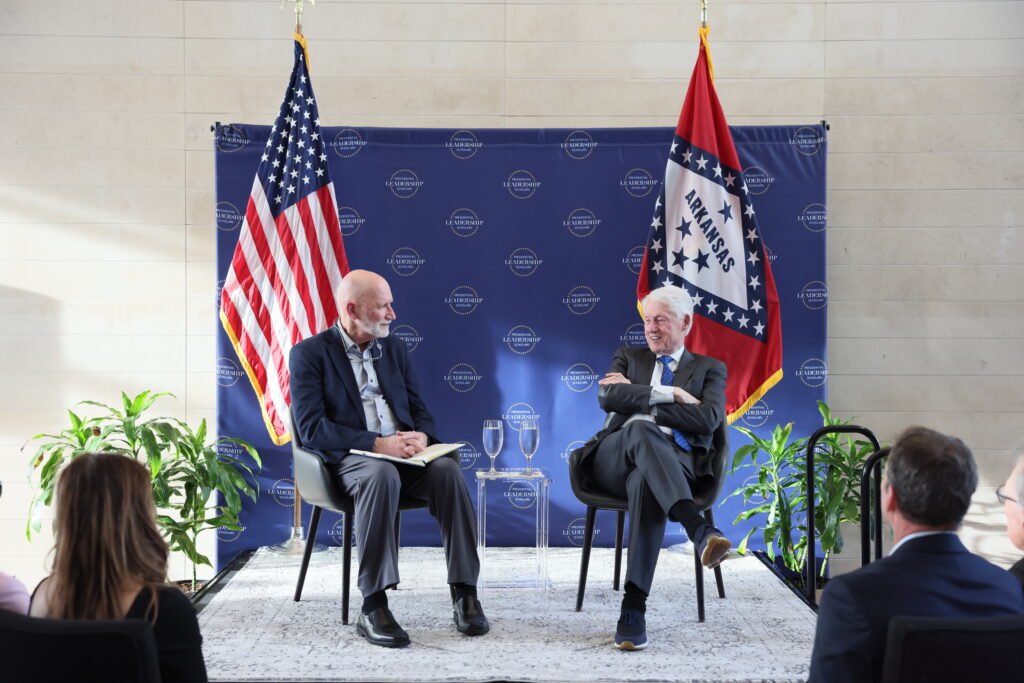
Secretary Hillary Rodham Clinton joined Scholars for her first conversation with the PLS program. She reflected on one of the most consequential speeches she delivered as first lady, declaring that “women’s rights are human rights once and for all,” at the U.N.’s Fourth World Conference on Women. The speech, born from a delicate and thoughtful speechwriting process, offered a compelling vision that galvanized a global campaign for gender equality.
She concluded by reminding Scholars that “even when you think you’ve made progress, there are no permanent victories or defeats…. You have to feel that you can get up every day and be resilient and engage in…the fight that you care about.”
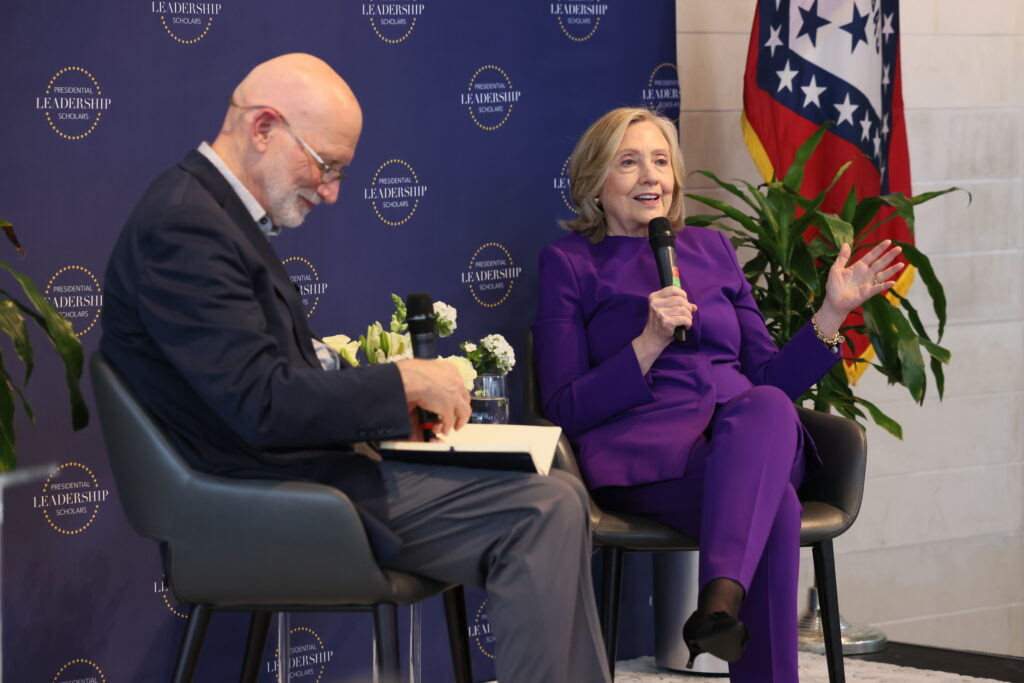
Throughout the module, Scholars explored the art and science of crafting a vision and narrative with Dr. Mike Hemphill, PLS Co-Director and Senior Director of Leadership Development for the Clinton Foundation. He encouraged Scholars to use visioning as an opportunity to “raise your head up from the work you’re currently doing to look at what you want to do – to envision the world as you want it to be.”
He led Scholars through practical activities during which they developed a simple, but persuasive story to describe their Personal Leadership Projects. These projects allow Scholars to put their learning into action as they work to solve a problem or pressing issue in their community, country, or the world.
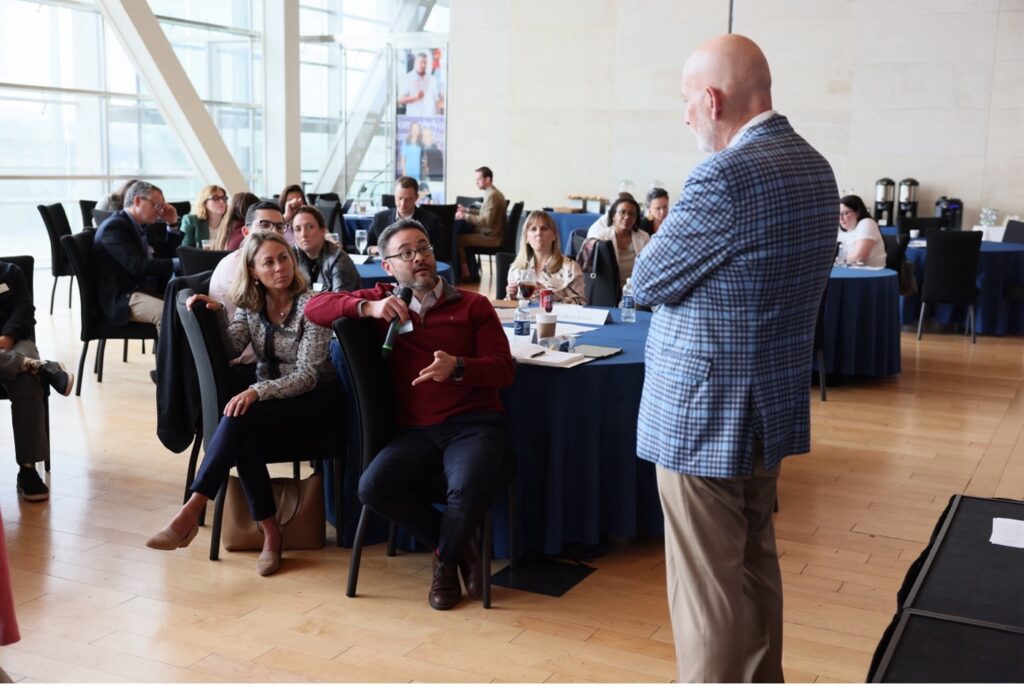
Scholars also heard from Secretary Rodney Slater, a Partner at Squire Patton Boggs and Secretary of Transportation in the Clinton Administration, and Congressman French Hill, who served in the administration of President George H.W. Bush. They shared lessons of leadership, management, and communication learned from the presidents for whom they worked.
Both speakers highlighted the diversity of the Presidential Leadership Scholars as one of the program’s most valuable assets.
Secretary Slater noted that, “President Clinton often says, ‘diverse groups of people make better decisions’…. And one of the hallmarks of this program is the diversity of the participants, diversity of perspectives, in diversity of areas of the country, region. It’s diversity in the best sense of the word.”
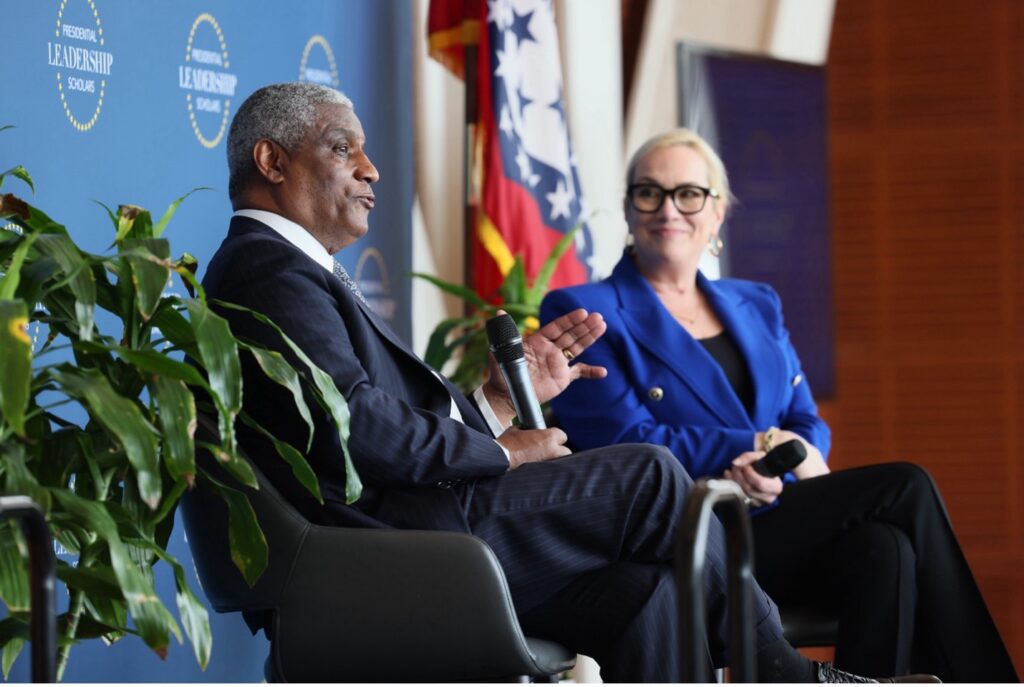
Congressman Hill encouraged Scholars to nurture the relationships they are forming through the program, saying PLS “is one of the greatest networking groups in our country. It’s eclectic, it’s interesting, it’s diverse, and you can learn from each other.”
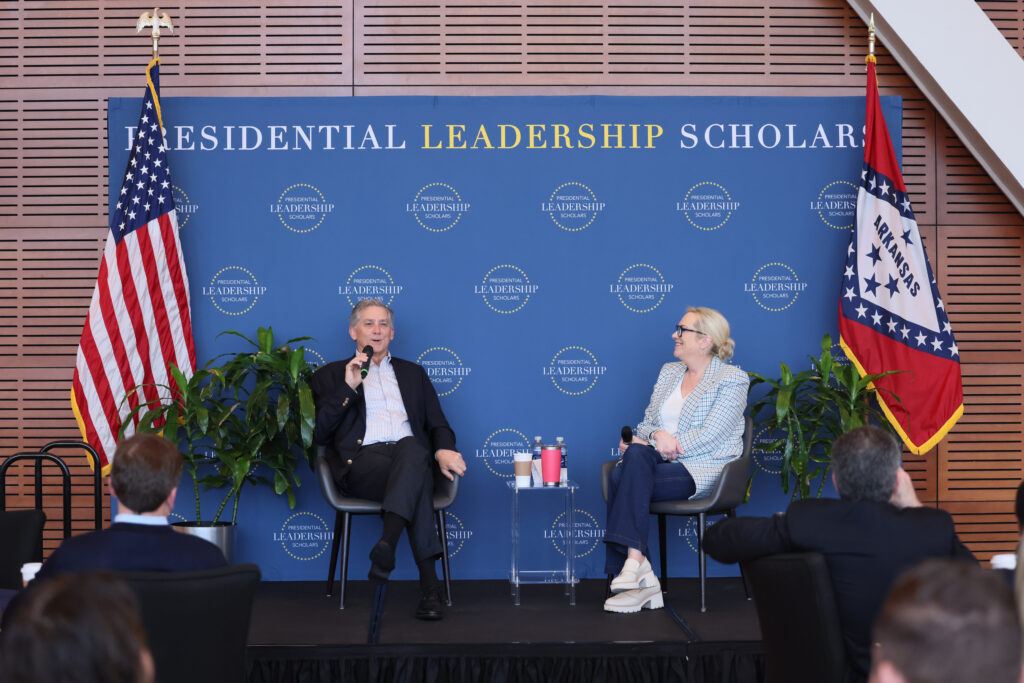
Throughout the module in Little Rock, Scholars demonstrated those characteristics. In the words of Scholar Beau McCastlain, the 2024 Arkansas Teacher of the Year, they gathered with “a spirit of openness, curiosity, and listening. [And with] the humility to be shaped by the moment.”
View more photos of Module Three here.
Presidential Leadership Scholars travels next to the Lyndon B. Johnson Presidential Library in Austin, Texas, for Module Four, where they will explore persuasion and influence.
